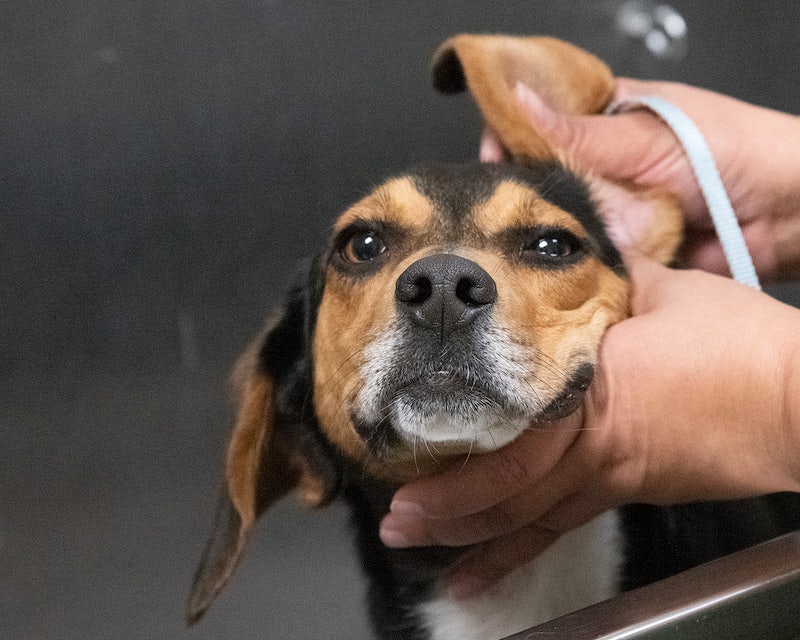As our beloved furry companions age, they enter a phase of life often referred to as their “golden years.” Senior dogs, or geriatric pets, deserve special care and attention to ensure they live their older years to the fullest. This article explores the essential aspects of healthcare for senior dogs, focusing on their brain health, joint health, overall wellbeing, and the role of supplements like hemp in enhancing their quality of life.
Understanding the Needs of Senior Pets
Just like humans, dogs go through the aging process, and with it comes a set of unique needs and challenges. Senior dogs are generally defined as those in the later stages of their lives, typically around the age of 7 to 10 years or older, depending on their breed and size. These older pets require extra care and attention to maintain their health and happiness.
When it comes to healthcare for senior dogs, regular veterinary check-ups are crucial. It’s recommended that senior pets visit a veterinarian at least twice a year or more. These frequent check-ups help identify signs of illness or other issues in their early stages, allowing for timely treatment and preventing potential complications. Senior pet exams are comprehensive and tailored to the specific needs of older dogs, ensuring their well-being.
Brain Health in Elderly Dogs
One crucial aspect of caring for elderly dogs is preserving their cognitive function and brain health. Similar to humans, senior pets may experience cognitive decline, commonly referred to as doggy dementia or cognitive dysfunction syndrome (CDS). To support your elder animal’s brain health, consider the following strategies:
- Mental Stimulation: Engage your senior pet in mental exercises and games to keep their minds sharp.
- Diet: Provide a balanced diet rich in antioxidants and omega-3 fatty acids, which can promote brain health.
- Supplements: Look for supplements designed to support brain health, such as hemp-based products that contain CBD, which may help alleviate anxiety and improve cognitive function.
Joint Health and Mobility
Joint health is another critical consideration for older pets, as they are more prone to conditions like arthritis and joint pain. To ensure your senior dog’s joint health:
- Regular Exercise: Encourage gentle, low-impact exercises to maintain muscle strength and joint flexibility.
- Weight Management: Keep your senior pet at a healthy weight to reduce stress on their joints.
- Joint Supplements: Consider giving your elder dog joint supplements like glucosamine and chondroitin or hemp hip supplements that can provide pain relief and improve joint mobility.
Overall Wellbeing and Pet Wellness
Maintaining your senior pet’s overall wellbeing is paramount. Here are some tips for promoting pet wellbeing in their golden years:
- Regular Veterinary Check-ups: Schedule frequent check-ups to monitor your senior pet’s health and address any emerging health problems promptly.
- Balanced Diet: Provide a well-balanced diet tailored to your dog’s specific needs and age, and consider incorporating a multivitamin to fill in nutritional gaps.
- Comfortable Environment: Make your home comfortable and safe for your elder dog, ensuring they have easy access to their favorite spots and bedding.
- Senior Pet Sitting: When you’re away, consider senior pet sitting services that specialize in caring for older pets, ensuring they receive the attention they require.
Hemp-Based Products for Senior Dogs
One emerging trend in senior pet care is the use of hemp-based products, particularly CBD-infused supplements, to address various health issues. Hemp can be a valuable health booster for senior dogs due to its potential benefits for pain management, anxiety reduction, and overall wellness. It may also support brain health and joint mobility in older pets.
The Role of Hemp in Senior Pet Wellness
- Pain Management: Hemp-derived CBD products can provide relief from chronic pain, making it easier for senior dogs to stay active and comfortable.
- Anxiety Reduction: Many senior pets experience anxiety or stress. Hemp-based products can help calm their nerves, promoting a sense of pet honesty and trust between pet and owner.
- Joint Health: Hemp hip supplements containing CBD may reduce inflammation and alleviate joint pain, improving your elder dog’s mobility and quality of life.
Conclusion
As our beloved furry companions enter their senior years, it’s our responsibility to provide them with the best possible care. Caring for senior dogs involves addressing their brain health, joint health, and overall wellbeing. Supplements, including hemp-based products, can play a significant role in enhancing the quality of life for geriatric pets. By understanding the unique needs of elder dogs and taking proactive steps to address them, you can ensure that your furry friend enjoys their golden years to the fullest, filled with dog wisdom and good health.
Frequently asked questions about Healthcare for Senior Dogs:
- Is it worth it to get pet insurance for a senior dog? Pet insurance for a senior dog can be beneficial, but it often comes with higher premiums and more limitations compared to insurance for younger dogs. Whether it’s worth it depends on your dog’s health, potential medical expenses, and your financial situation. Consider your dog’s specific needs and consult with a veterinarian to make an informed decision.
- How do you take care of a 15-year-old dog? Taking care of a senior dog involves special attention to their changing needs. Ensure they have a comfortable and safe environment, provide a balanced diet suitable for their age and health conditions, engage in regular low-impact exercise, schedule regular veterinary check-ups, and administer any prescribed medications. Senior dogs may also need more warmth, attention, and patience due to potential age-related issues.
- Does my 14-year-old dog need vaccinations? Vaccination needs for older dogs may vary depending on their health and prior vaccination history. Generally, core vaccines like rabies are often required by law, regardless of age. Non-core vaccines may be recommended based on your dog’s lifestyle and potential exposure to diseases. Consult with your veterinarian to determine the appropriate vaccination schedule for your specific dog. They will consider your dog’s age and health when making recommendations.


1 thought on “Common Health Issues in Senior Dogs and How to Prevent Them”